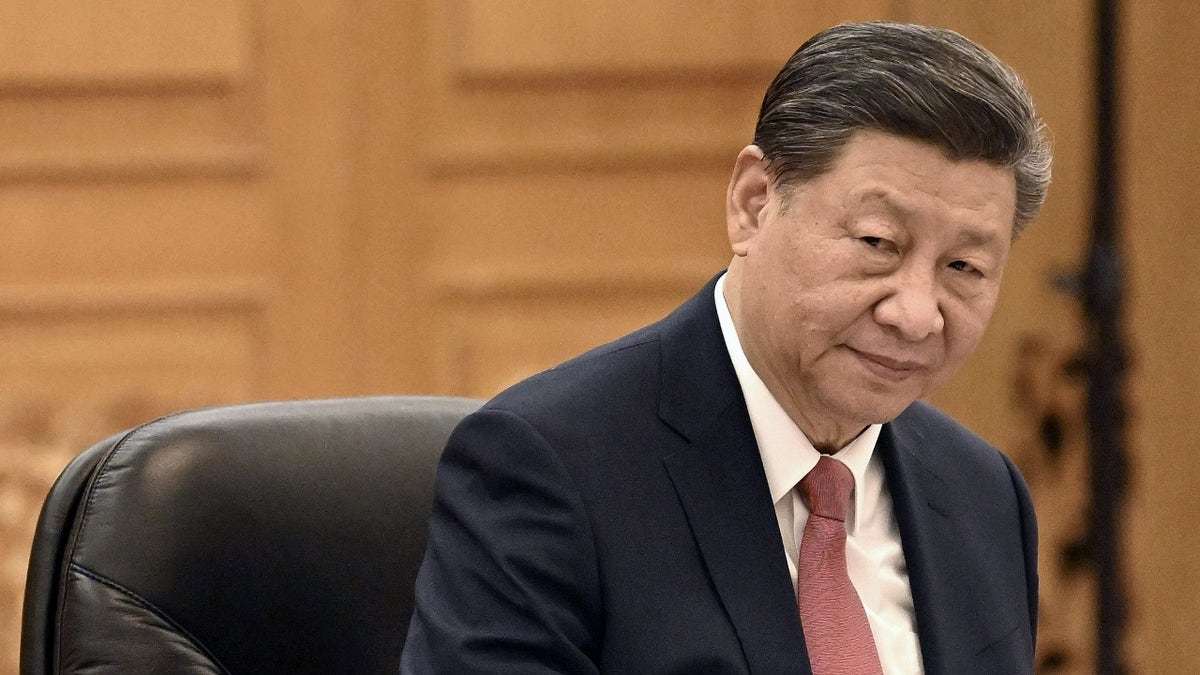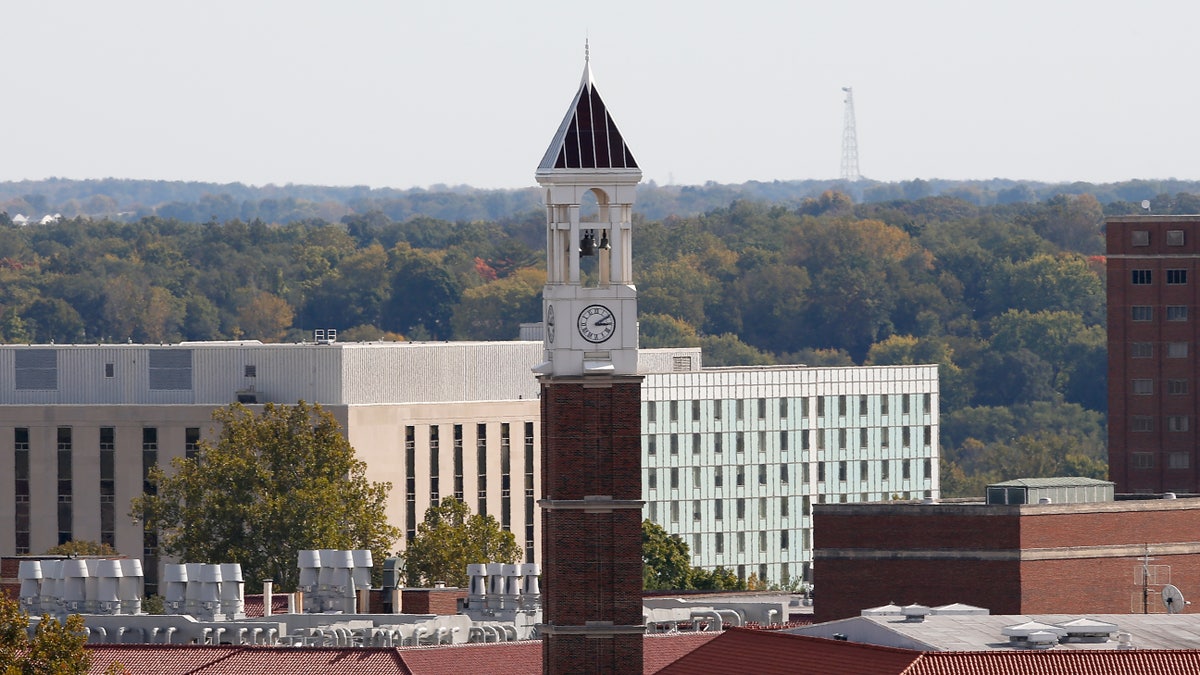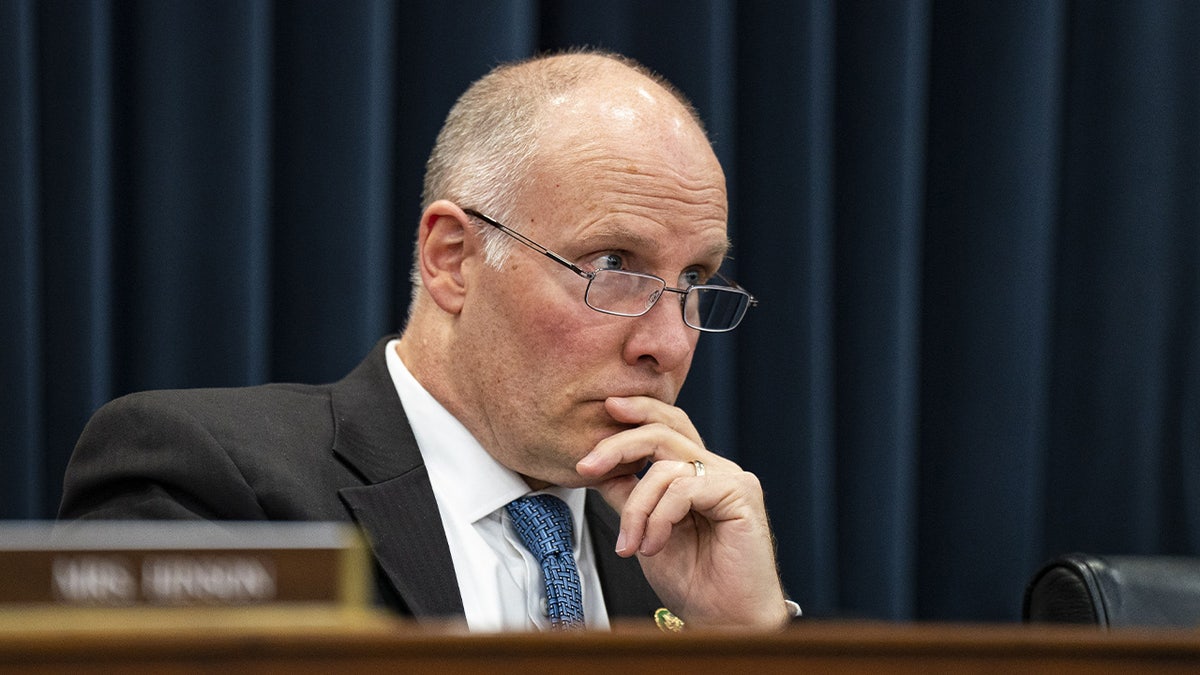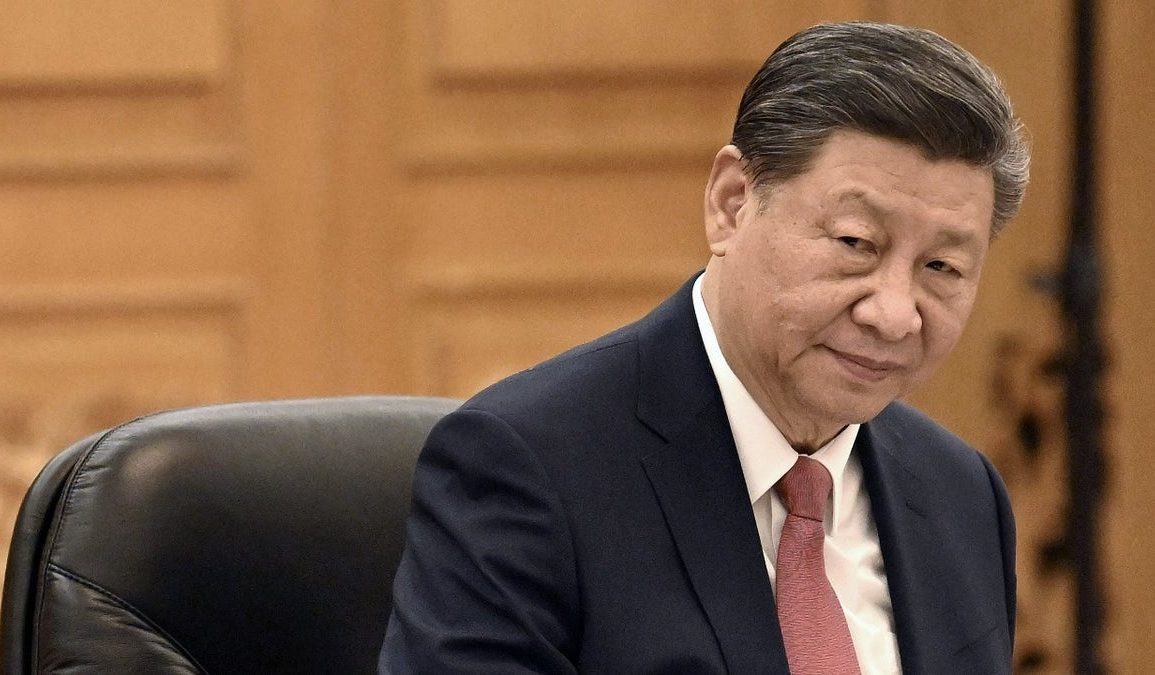NEWYou can now listen to Fox News articles!
FIRST ON FOX: American universities are educating thousands of Chinese nationals with ties to the Chinese military — the People’s Liberation Army (PLA), according to findings from a new China Committee report.
Over 400 Chinese nationals at just one of the six universities they investigated were conducting federally funded research in sensitive fields like nuclear engineering and computer science.
Meanwhile, the Biden administration failed to enforce an executive order signed by President Donald Trump in 2020 banning Chinese nationals engaged in military-linked research, the report claims.
That order’s rationale was that Chinese authorities use postgraduate students as “non-traditional collectors” of intelligence information.
MAJOR COLLEGES FACE HEAT OVER CHINESE SCHOLARSHIP TIES AS ESPIONAGE CONCERNS MOUNT

Chinese President Xi Jinping is overseeing his country’s bid to topple the U.S. in the AI race.
At another university, information provided to the committee showed that half of Chinese nationals pursuing a Ph.D. on campus were involved in federally funded research projects.
Every surveyed U.S. university — Maryland, Illinois Urbana-Champaign, Carnegie Mellon, University of Southern California (USA), Purdue, Stanford — admitted students from China’s top military and defense research schools. These include the Seven Sons of National Defense, a group of elite institutions whose primary mission is to advance military research.
Fox News Digital has contacted each American university listed in the report.
“USC already maintains strong safeguards to protect national security – by requiring the disclosure of foreign financial interests and affiliations, strictly reviewing potential conflicts of interest, and prohibiting participation in restricted foreign talent programs – and we are always open to feedback on how our processes can be strengthened even further,” USC said in a statement on the report.
“We cannot allow America’s taxpayer-funded research labs and classrooms to serve as staging grounds for Beijing’s military ambitions,” said House Select Committee on Chairman John Moolenaar, R-Mich.
Those schools, including Beihang University, Harbin Institute of Technology and Northwestern Polytechnical University, maintain extensive defense laboratories and partnerships with state-owned weapons conglomerates.
One example is Beihang University, which has been on the U.S. Entity List since 2001. It has nine major defense labs and “adheres to Xi Jinping Thought.” Beihang students were found at every U.S. university surveyed, according to the report.
Harbin Engineering University, originally the PLA Military Engineering Institute, is represented at 83% of U.S. universities surveyed.
At the University of Maryland, more than 25% of Chinese students in fall 2024 were involved in federally funded research, but the university admitted it does not track what research they conduct.
MAJOR COLLEGES FACE HEAT OVER CHINESE SCHOLARSHIP TIES AS ESPIONAGE CONCERNS MOUNT



The campus clock tower of Purdue University can be seen from Ross-Ade Stadium on Oct. 10, 2015, in West Lafayette, Indiana. (Scott Boehm via AP)
The University of Illinois at Urbana-Champaign ran a joint engineering institute with Zhejiang University, which has defense labs and ties to Chinese intelligence.
Trump stirred controversy recently by saying he would allow 600,000 Chinese students into U.S. universities — a figure that exceeds current enrollment levels of Chinese nationals in the U.S.
The number of Chinese students studying in the U.S. peaked at 372,532 in the 2019-2020 academic year, just as the COVID-19 pandemic took hold.
“I hear so many stories about ‘We are not going to allow their students,’ but we are going to allow their students to come in. We are going to allow it. It’s very important — 600,000 students,” he said during a White House meeting last month.
The report also challenged universities’ frequent claim that foreign students help subsidize American classmates by paying higher tuition.
At one school, Chinese nationals made up more than 20 percent of the Ph.D. population but contributed just 0.2 percent of tuition revenue, with most of their studies funded by federal grants, state subsidies or university assistantships. “American taxpayers are footing the bill,” the committee wrote, to provide STEM training and lab access for Chinese nationals — many of them with direct ties to the PLA.
TRUMP’S CHINESE STUDENT VISA PUSH SETS OFF ALARM BELLS AMID RISING CCP ‘INFLUENCE’ IN US
Faculty collaborations added another layer of risk, investigators found. The University of Maryland reported at least 89 faculty partnerships and 15 exchange agreements with Chinese entities, while Purdue University hosted 16 visiting faculty from Chinese universities in sensitive departments such as electrical engineering and computer science.
Officials acknowledged the school does not fully distinguish between casual academic contact and long-term research ties, leaving oversight gaps.
The committee also noted Purdue professors traveling in the other direction. The report said six Purdue faculty members were on sabbatical in China, including two at universities overseen by Beijing’s defense ministry and another at a State Key Laboratory — institutions described as “central nodes” in China’s military-civil fusion system.
Purdue has since taken corrective action, adopting new safeguards to prevent foreign influence. The school banned foreign adversary funding, tightened research security and export controls, added new protections for intellectual property and restricted sabbaticals with Chinese institutions.
The committee praised Purdue’s new approach as an example for other schools.



“We cannot allow America’s taxpayer-funded research labs and classrooms to serve as staging grounds for Beijing’s military ambitions,” said House Select Committee on Chairman John Moolenaar, R-Mich. (Al Drago/Bloomberg via Getty Images)
At Illinois, faculty worked inside a joint institute with Zhejiang University — an institution tied to China’s defense establishment and intelligence services.
But amid the investigation, the University of Illinois Urbana-Champaign announced it is terminating dozens of agreements with Chinese universities. That includes shutting down its flagship joint engineering institute with Zhejiang University — an institution with defense laboratories and documented ties to Chinese intelligence.
UIUC also terminated all joint degree programs with Chinese universities, canceled six “priority admission” agreements that gave Chinese students easier entry to master’s programs, and ended a summer faculty training program with Shanghai institutions.
Lawmakers commended Illinois for “leading by example” by unwinding dozens of Chinese partnerships.
Lawmakers recommended codifying Trump’s 2020 executive order into law, tightening visa screening, and barring Chinese nationals from participating in U.S. government–funded research labs. They also urged universities to disclose foreign student affiliations and funding sources to federal agencies. Without such reforms, the report warned, American higher education will continue training scientists and engineers “not for America’s benefit, but for the PLA.”
Committee staff also pointed to recent actions by universities to unwind ties with the China Scholarship Council, a government-run student funding body they described as part of Beijing’s “technology transfer apparatus.”
“We had identified that seven U.S. universities had joint agreements or a decade-long period with the CSC,” one staffer said, “and all of those universities shut down their CSC agreements” after the committee raised concerns.
Recent prosecutions show the problem is not theoretical. In June, two Chinese students at the University of Michigan were charged in a biopathogen case after attempting to bring restricted materials into the country. The following month, Chinese students were convicted for spying after flying drones over the Norfolk Naval Station, while others in Michigan were found guilty of trying to gain access to U.S. military installations.
CLICK HERE TO GET THE FOX NEWS APP
Other universities have also moved to unwind partnerships with Chinese institutions in recent years. Schools including UC Berkeley, Georgia Tech, and the University of Michigan have canceled joint institutes or collaborative programs after congressional scrutiny, a trend lawmakers said shows pressure is prompting at least some schools to scale back ties.








